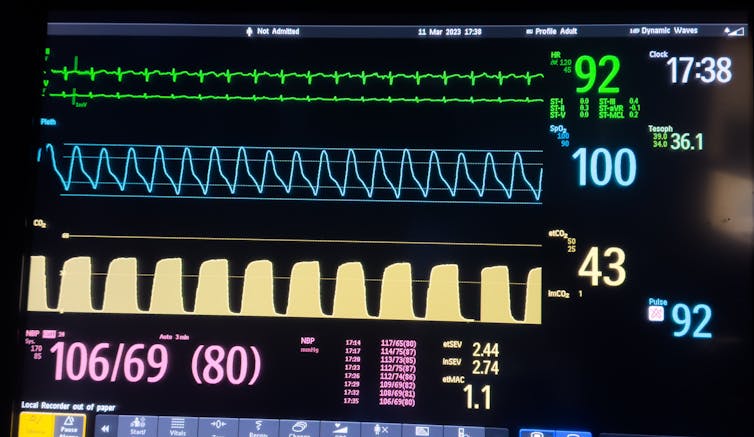
At every moment, your body’s internal organs are sending signals to your brain. You’ll be mostly unaware of them, but sometimes they cut through: for example when you’re hungry, or when you need to go to the bathroom. Our ability to tap into these hidden signals is called interoception – sometimes known as a sixth sense.
In this episode of The Conversation Weekly, we speak to a cognitive neuroscientist and expert on interoception about how new research on this connection between our minds and bodies could lead to breakthroughs in mental and physical healthcare.
Interoception is defined as the unconscious or conscious sensing of internal bodily sensations. The concept was first proposed in the early 20th century by a British neuroscientist called Charles Sherrington, but it was largely ignored by researchers until around ten years ago. One of those leading the charge is Sarah Garfinkel, a professor of cognitive neuroscience at University College London in the UK.
When I first started, I would Google it and there’d be no hits, or very few. No one was talking about it. It’s amazing to me to see how much has changed in those ten years, and I’m excited to see that we’re entering into an age of neuroscience where we’re looking at an integrated system bringing in the body and the brain.
Most people probably aren’t even aware of interoception until they have a problem with it. Garfinkel joked that it wouldn’t be very efficient if we were constantly distracted by our beating heart, or if we had conscious insight into the functioning of our kidneys all the time. “Our brains have developed a bias to be perceiving and aware of the external world,” she explains, which is why our exteroceptive senses such as sight, hearing and touch dominate.
Garfinkel says interoception is important to accurately understand what’s going on in your body – particularly for people with conditions such as autism, who often have difficulty knowing when to eat. But she believes our ability to read signals from our organs can also shape our emotional experience.
I think of feelings as changes in bodily states and our perceptions of them. So (I’m) trying to understand how different clinical conditions may have differences either in the bodily signals themselves or the sensing of these changes and how that might map onto different emotion profiles.
She gives the example of post-traumatic stress disorder (PTSD), suggesting it could be that increased bodily activity, such as an elevated heart rate, interacts with the brain to increase fear in people with PTSD.
To find out more about Garfinkel’s research and how she’s developing ways to train people’s interoception to help them deal with anxiety, listen to the full episode of The Conversation Weekly podcast.
This episode of The Conversation Weekly was written and produced by Katie Flood, with assistance from Mend Mariwany. Sound design was by Eloise Stevens, and our theme music is by Neeta Sarl. Gemma Ware is the executive producer.
You can find us on X, formerly known as Twitter @TC_Audio, on Instagram at theconversationdotcom or via email. You can also subscribe to The Conversation’s free daily email here.
Listen to The Conversation Weekly via any of the apps listed above, download it directly via our RSS feed or find out how else to listen here.![]()
Gemma Ware, Editor and Co-Host, The Conversation Weekly Podcast, The Conversation
This article is republished from The Conversation under a Creative Commons license. Read the original article.